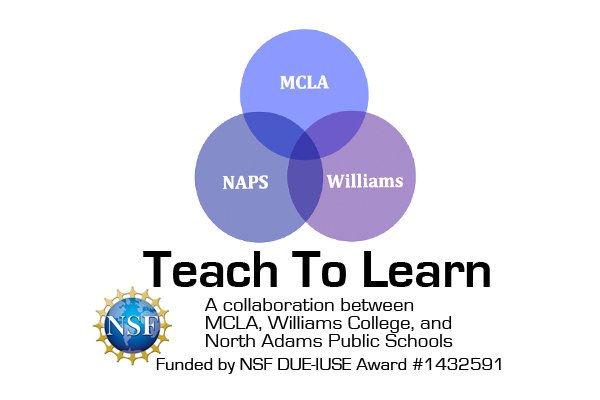Teaching to Learn
Our Science Fellows, Classroom Teachers, and staff developed and piloted 19 NGSS-aligned, inquiry-based science units over the 4+ years of our NSF grant. (All units are available for download and free to use under the Creative Commons License. See list to the right.)
As we planned our summer curriculum development work for years 2017 and 2018, the team agreed to focus on creating exemplar units by integrating educative curriculum materials (ECMs). We invited noted local science educators (formal and informal) and our summer science fellows and classroom teachers to participate in a one-day design thinking workshop.
The challenge we presented during the workshop was to think expansively on what curriculum could and should be, and then help design that experience. We were looking for insight into ways to embed within the curriculum specific materials that would strengthen teachers’ content expertise, develop pedagogical content knowledge (PCK)—that is, knowledge of how to teach the content (Shulman, 1986), and to integrate disciplinary practices (eg, help students understand and engage in the authentic activities of science and scientist).
Our exemplary units have been piloted in western Massachusetts public school districts, and we are excited to offer them to other larger education community. The baseline "exemplary" PCK features we incorporated included science talk, teaching tips, and student thinking callouts. We also indicated where anchor phenomena occur and how the science practices find form. In addition, the research shows that science content knowledge helps teachers better assess their students' understanding, so we included Science Content (Background) Knowledge and essential question(s) concept maps.
By the end of our summer work of 2018, we had written or revised all units to reach a baseline for exemplar and then focused on additional deeper level exemplar components.
The central goal of the Teaching to Learn program is to impact the science learning experiences of undergraduate science, education, and liberal arts students by engaging them in developing and implementing science curricula in K-5 classrooms in a high needs school district. Undergraduates from MCLA and Williams College work with both elementary teachers and college science professors to develop inquiry-based units of instruction based on the Next Generation Science Standards (NGSS).
T2L Quick Links
NGSS-aligned Curriculum Units
Gr K Plants and Animals
Gr K Matter and Motion
Gr 1 Light and Sound
Gr 1 Patterns in Our World
Gr 1 Plants and Animals
Gr 2 Materials Matter
Gr 2 Land and Water (Exemplar)
Gr 2 Habitats
Gr 3 Forces and Magnets
Gr 3 Adaptation/Heredity
Gr 3 Weather and Climate (Exemplar)
Gr 4 Earth's Surface
Gr 4 Plant and Animal Anatomy
Gr 4 Energy (Exemplar)
Gr 4 Waves
Gr 5 Food Webs
Gr 5 The Karma of Water (Exemplar)
Gr 5 Earth's Place in the Universe
Gr 5 Matter and its Interactions

